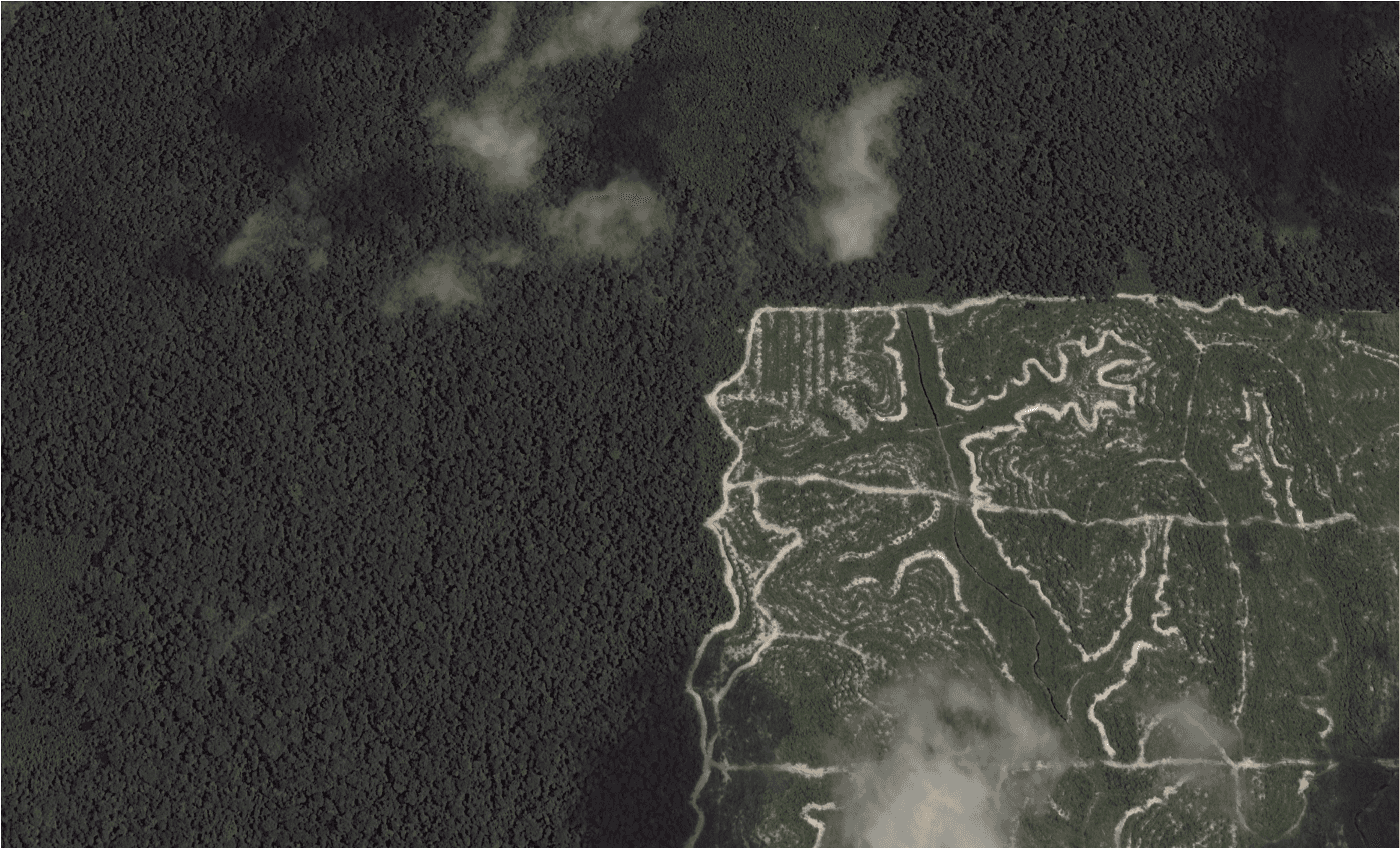- Indonesia’s Corruption Eradication Commission is perhaps the most trusted institution in a country plagued with graft. But the KPK, as it is known, has prosecuted only a handful of cases in the plantation sector.
- Corruption in the plantation sector is a principal underlying cause of Indonesia’s deforestation and land-rights crisis. Our analysis found a range of obstacles preventing the KPK from taking action against corrupt politicians and the unscrupulous companies engaging in large-scale land deals.
- This article is part of the Indonesia for Sale series, produced through a collaboration between The Gecko Project and Mongabay.
In 2005, an Indonesian election commissioner named Mulyana Kusumah visited a hotel room in Jakarta to hand over 150 million rupiah, then worth more than $15,000, in cash to an official from the state audit board. Mulyana hoped to smooth over a discrepancy auditors had found in the tender process for ballot boxes. But the auditor was wearing a wire, while investigators from the nation’s antigraft agency, the KPK, lay in wait. After arresting Mulyana, a KPK team swept the election commission’s offices and found a treasure trove of documents and computer files that would allow them to piece together billions of rupiah in kickbacks, resulting in a spate of high-level convictions.
The case served notice that an agency founded just two years prior had arrived with a splash. “Almost every day, the newspaper and television [journalists] wrote about the KPK,” Ary Nugroho, an early KPK adviser, said some years later. “The expectations of the people became bigger and bigger after that case.”
The KPK was established in 2003, half a decade after the fall of the dictator Suharto. Its first leaders built the agency from scratch, and after a few short years, wrote Gabriel Kuris, deputy director of the Center for the Advancement of Public Integrity at Columbia Law School in New York, “they had built one of the world’s most effective anti-corruption agencies.” Since then, the number of cases brought by the KPK has grown rapidly, with dozens of politicians, bureaucrats and businesspeople jailed for graft every year.
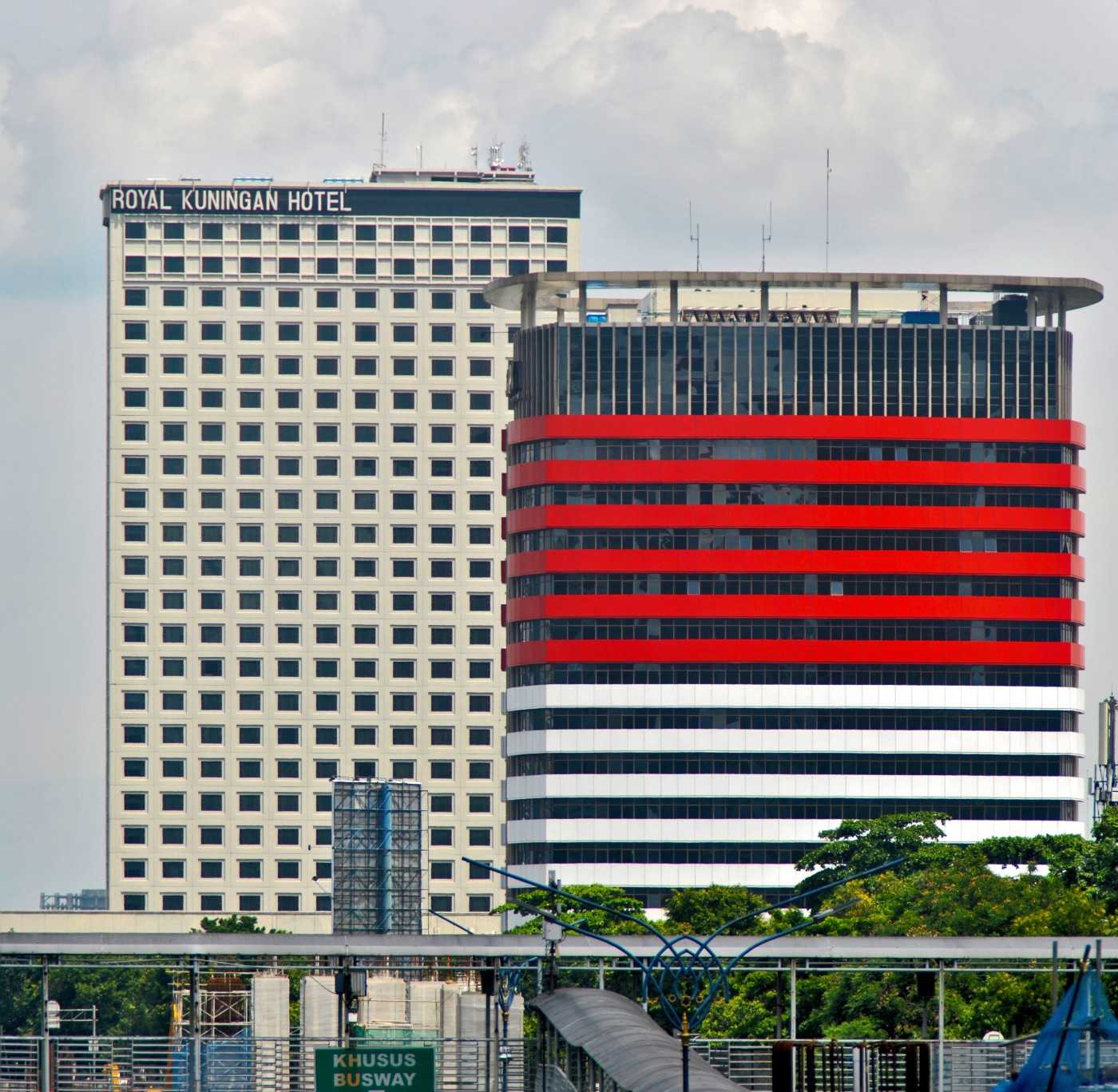
At the same time, the KPK has prosecuted only a handful of cases involving the plantation sector. Indonesia, the world’s largest producer of palm oil, is home to a huge number of palm estates so enormous they are often the size of small cities. Timber and sugarcane plantations are also prevalent. The plantations are typically run by large conglomerates whose operations must be approved by local politicians. The sector is known to be riddled with corruption, having exploded in a fragile moment during the nation’s transition to democracy. For the KPK, some big wins against plantation firms in the mid-2000s have given way to a trickle of cases in the past few years.
There is a growing realization that the corrupt allocation of land to plantation firms is a main underlying cause of Indonesia’s deforestation and land-rights crisis. Backroom deals with politicians allow companies to clear rainforests and peat swamps that might otherwise be protected, and to seize land from indigenous and other rural communities, while also channeling dark money into elections. With the stakes so high, then, why has the KPK prosecuted so few of these cases?
A promising start
The KPK’s first foray into the plantation sector came in 2007, when it exposed a schememasterminded by Martias Fangiono, owner of multinational timber firm Surya Dumai, and Suwarna Abdul Fatah, then governor of East Kalimantan province in Indonesian Borneo. Martias’s firm was running out of raw materials for its mills following a nationwide crackdown on illegal logging. Claiming it would establish oil palm plantations, the firm obtained licenses from Suwarna to clear a vast area of rainforest in Borneo. The governor also allowed the firm to avoid providing a bank guarantee to cover the expected taxes from the timber revenue.
Martias’s firm felled almost 700,000 cubic meters of timber, but the land was never planted. Both he and Suwarna were convicted and imprisoned, with Martias ordered to pay 346 billion rupiah, then equivalent to around $35 million.
Not long after, the KPK launched the first of what would become a string of cases in Riau province, on Indonesia’s main western island of Sumatra, with prosecutions against a governor and several district chiefs. It began with charges against Azmun Jafar, a district chief who had issued timber plantation licenses to seven shell companies set up by his cronies and family members. After receiving the licenses, these individuals quickly flipped the companies to genuine plantation firms, including to an arm of the APRIL Group, one of Asia’s biggest paper producers. The firms on the other end of the scheme proceeded to log the forest in their concessions for a hefty profit. The courts decided it had cost the state 1.2 trillion rupiah, then equivalent to $121 million, in losses from timber revenues and taxes.
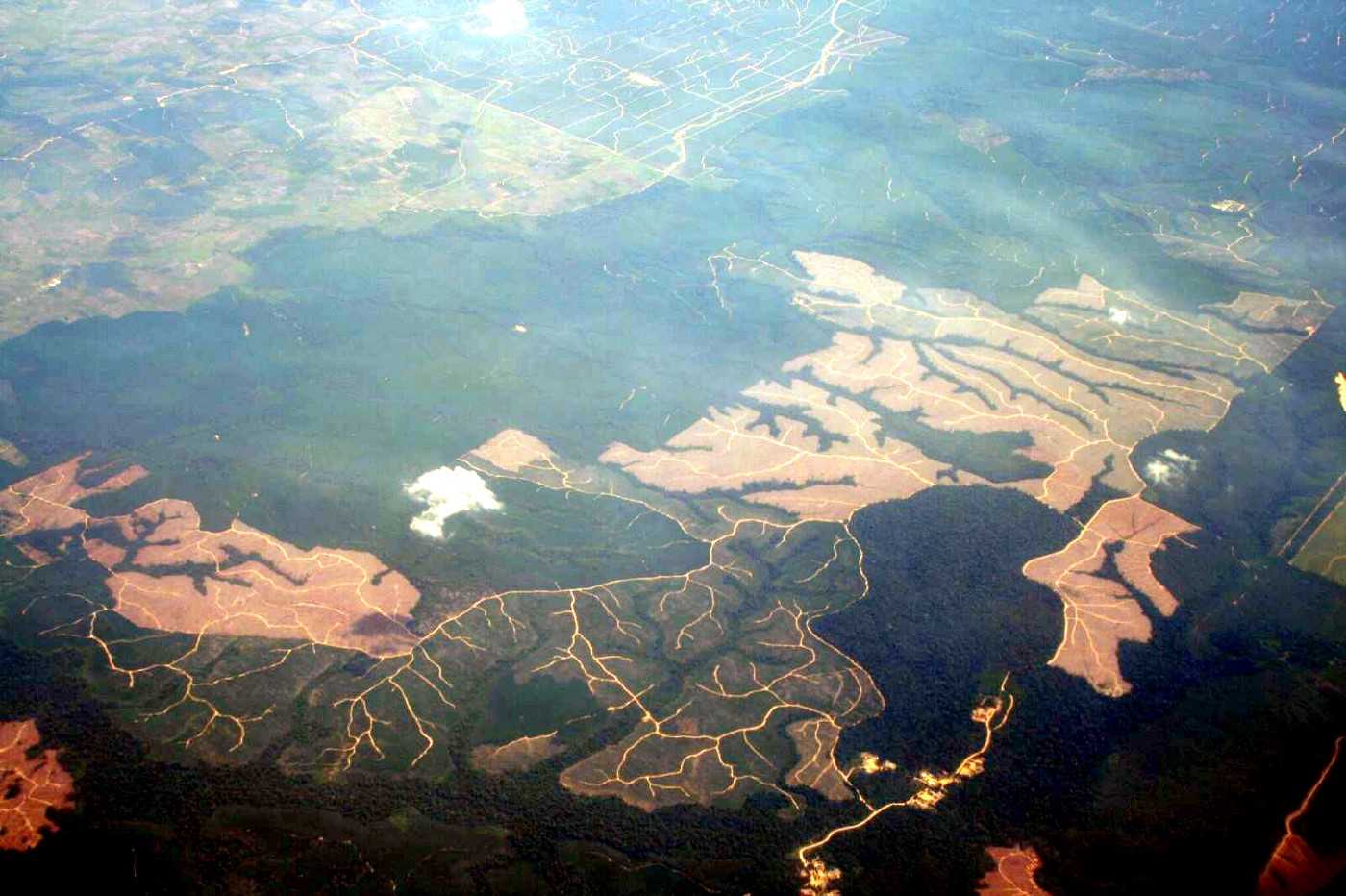
After the victories in East Kalimantan and Riau, however, the attention given by the KPK to the plantation sector declined dramatically. The Gecko Project and Mongabay were able to identify just two more cases, in 2014 and 2015, in which politicians were convicted in connection with oil palm projects. The cases involved businesspeople bribing a district chief and a governor, respectively, to ease the licensing process for plantations. And yet, despite the minuscule number of prosecutions, plantations have proliferated in jurisdictions run by demonstrably corrupt politicians. The destruction of rainforests and allegations of land grabbing have been quick to follow.
Obstacles to prosecution in law and practice
Viewed in isolation, the notion that the KPK would decline to put resources toward investigating plantation firms seems implausible. But the agency has its hands full, with corruption endemic to virtually every level of government and every sector of the economy in Indonesia. Since 2005, the KPK has received an average of more than 7,000 reports of graft per year. Half of these complaints include credible evidence it can follow up on. But while the number of cases it prosecutes has increased considerably, from 45 in 2011 to 110 in 2016, this represents only a fraction of the credible reports it receives.
The KPK “has so few investigators, [it] has to choose the easiest cases,” Tama Langkun, a researcher with Indonesia Corruption Watch, an NGO based in Jakarta, said in an interview. “It can’t spare the energy and time to take on [many of the more] challenging cases we flag up.”
The KPK also has a limited appetite for taking on challenging cases that might jeopardize its success rate. The agency has a perfect record of winning the cases it prosecutes (on appeal, if not at the first attempt), secured partly by pursuing cases in which the evidence is irrefutable, such as when a suspect has been caught red-handed in the act of bribery. The agency also finds itself periodically under political attack from rival institutions, particularly the police. This further drains its resources, while also entrenching the need to win cases, as any loss in court could potentially be used to support allegations of overreach from its detractors.
A further obstacle is the law itself. The 2002 Corruption Law stipulates that if a suspect has not been caught delivering or accepting a bribe, the agency must show that the allegedly corrupt act resulted in “state losses.” This criterion is easiest to fulfill where officials have stolen from state budgets or engaged in procurement scams, cases that incur obvious fiscal losses. Of the 110 cases the KPK prosecuted in 2016, the largest share, around a quarter, involved politicians siphoning money from state budgets. Cases where this has taken place in the education and health sectors are a priority. They represent 20 percent and 5 percent of the state budget, respectively, with huge sums to be made through corruption, and egregious consequences where it occurs. Our analysis of KPK annual reports suggests that such cases, along with the bribery of judges and court officials, make up the vast majority of the agency’s prosecutions.
By contrast, corruption in the plantation sector often involves more complex schemes, where a tidy figure for “state losses” is not always easy to calculate. The model that The Gecko Project and Mongabay have investigated over the past 18 months entails the use of shell companies and proxy owners as vehicles for selling plantation licenses to major firms. One politician, Darwan Ali, then the head of Seruyan district in Borneo, issued permits to 18 companies set up by his relatives and cronies, who quickly flipped them on to major firms. Another politician, Hambit Bintih, the then head of Gunung Mas district on the same island, gave licenses to five companies formed by his campaign manager as he was preparing to launch an expensive re-election campaign.
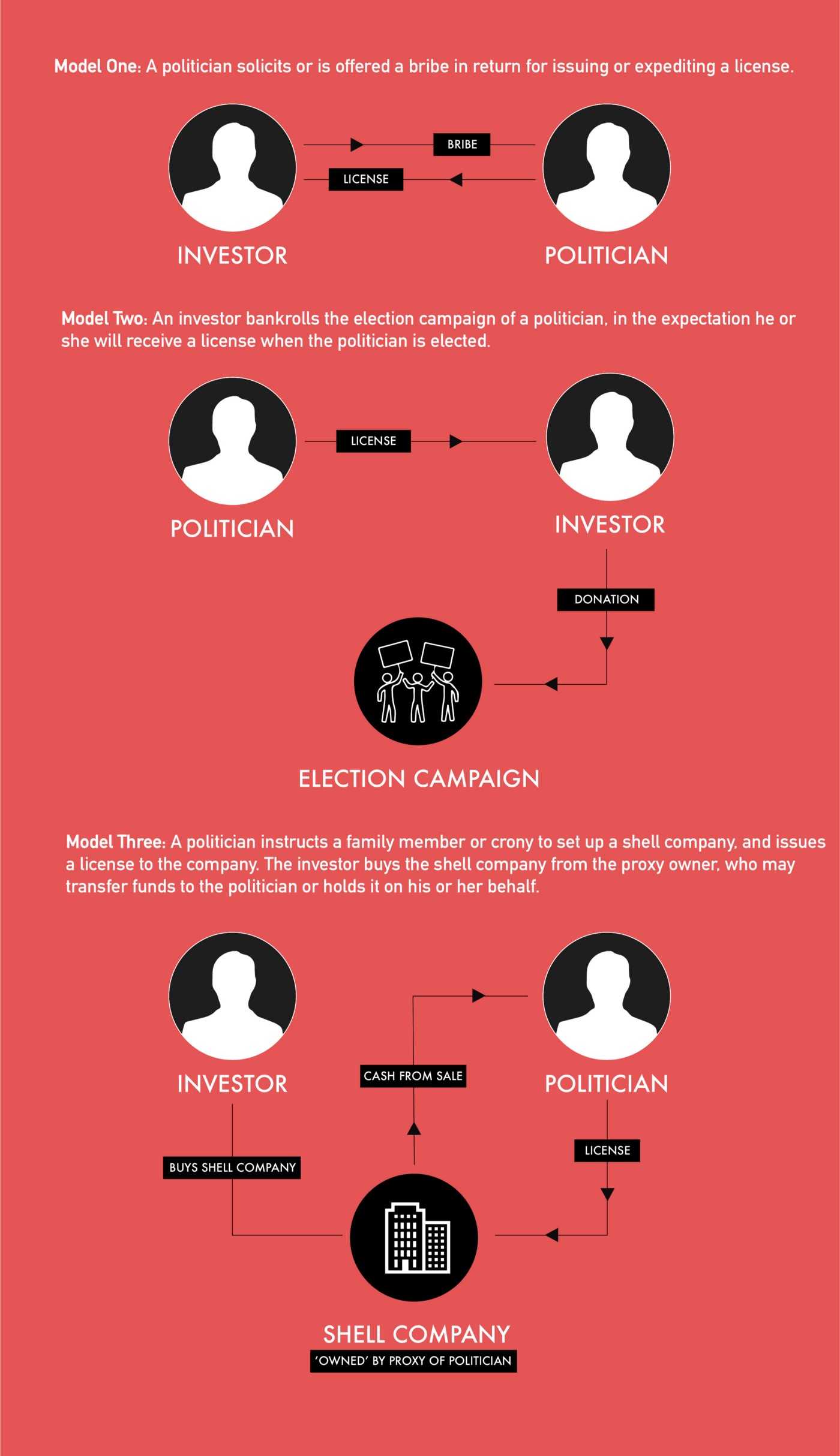
In its successful case against Azmun Jafar, the district chief in Sumatra who presided over a similar scheme, the KPK used flyover and satellite imagery to view the damaged forestland from above, helping the agency come up with a reliable figure for state losses, said Lais Abid, another ICW researcher. But such methodologies are normally beyond the KPK’s resources, he said. In the Seruyan case, for example, a local activist who reported Darwan Ali to the KPK argued that the value of the timber that was logged as a result of the licensing scheme should be tallied up and considered as state losses. But while the KPK paid several visits to Seruyan, it never proceeded with charges against Darwan. Local activists said they had heard from the KPK that state losses were a sticking point.
“The problem is when it comes to natural resources, it’s hard to prove state losses,” Lais said. “It’s much easier if they rob state coffers directly.”
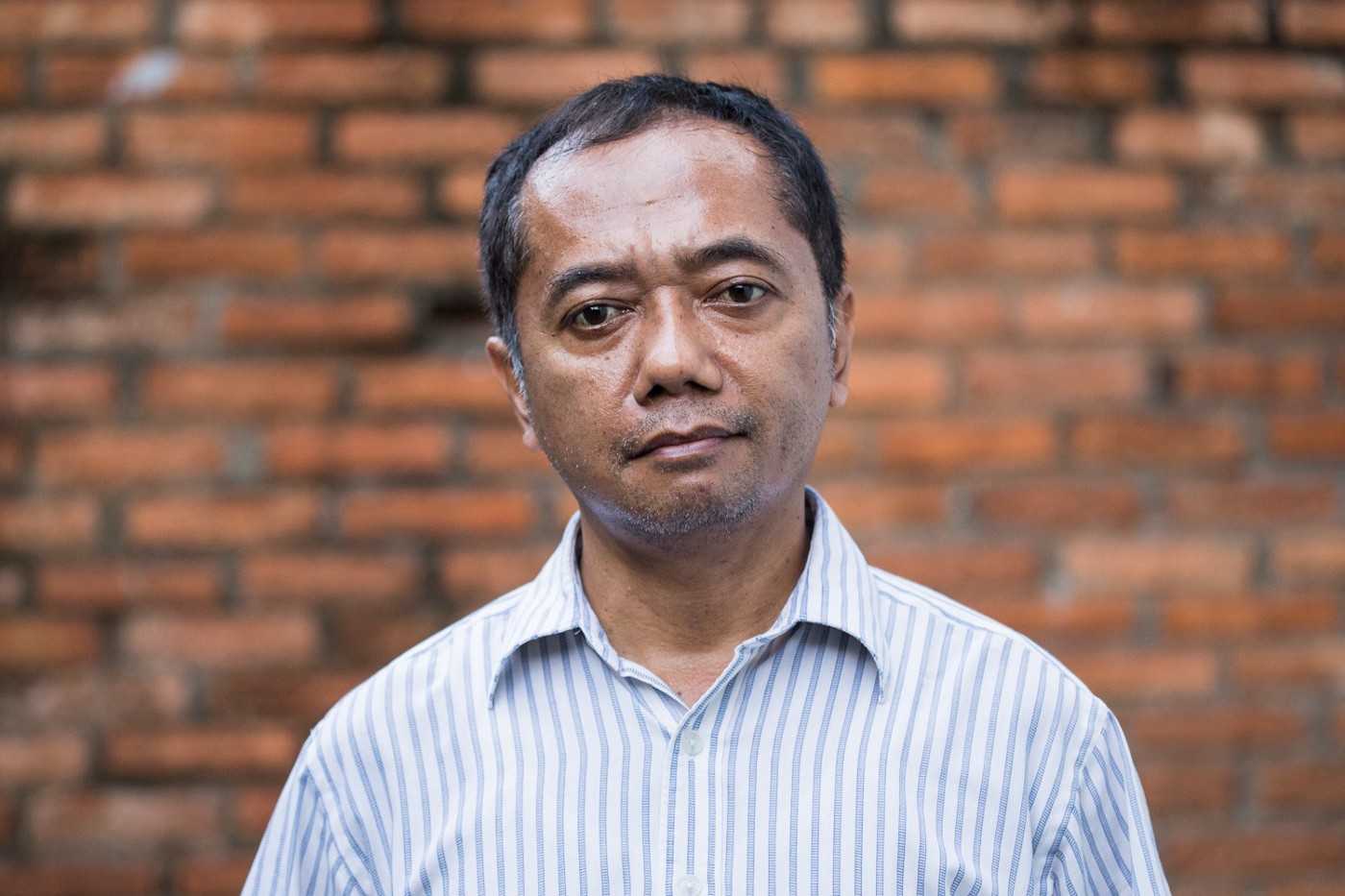
What chance for change?
Recent ongoing legal innovations may have implications for the KPK’s ability to take on and win plantation cases. In a case brought this year against then South Sulawesi governor Nur Alam, alleged to have corruptly issued nickel-mining licenses, the agency argued that the losses incurred by the state were not only fiscal, but also environmental. As ICW put it, “What was done by Nur Alam was not only detrimental to the state’s finances but also had an impact of long term environmental damage, lasting for generations.” KPK prosecutors argued that of the 4.3 trillion rupiah ($312 million) in state losses incurred by the mining operations, more than half could be attributed to environmental damage.
But although the governor was jailed, the judges rejected the environmental argument, discounting it from their decision over his sentence. Moreover, Nur Alam filed his own suit against Basuki Wasis, an academic who testified on behalf of the KPK that the governor’s actions had harmed the environment. In hopes of securing a stricter sentence, the KPK has appealed the ruling against Nur Alam. The ultimate decision potentially holds great significance for the effort to tackle graft in the natural resource sector.
Some observers have argued that the definition of state losses must be expanded to include harm to people. Indonesia’s agribusiness explosion has resulted in thousands of disputes over land between companies and communities, and deprived local people of natural resources they depend on for their livelihoods and culture. A recent study commissioned by the Indonesia Business Council for Sustainable Development, for example, examined several communities whose forests had been annexed by plantation firms, cutting them off from natural supplies of water and food. The study found that local residents were forced to pay an additional monthly cost of 3.48 million rupiah ($250) per household to buy what they used to get for free.
The KPK has carried out its own study on the “social cost of corruption,” according to Sulistyanto, head of the agency’s prevention department. “Hopefully, this can increase the fines and penalties,” he said in an interview. “It’s still a study, but we hope it can be constructed in law.”
Indeed, the KPK has focused greater energy on preventing corruption in the plantation sector than on pursuing prosecutions. For example, the agency is pushing local governments to consolidate their licensing maps and hand them over to authorities in Jakarta. It is also working with the Ministry of Agriculture to create a database of every plantation company that documents their ownership. This is in line with a new regulation issued by President Joko Widodo in March, mandating that every company in the country must disclose at least one of its beneficial owners to the government within a year. “If we only focus on enforcement, we might make more arrests, but the opportunities for corruption will continue to exist,” Sulistyanto said. “The systems and regulations must be improved.”
In a bid to improve governance around licensing, the KPK has instigated a massive review of permits held by plantation companies across the country. A similar program in the mining sector has already resulted in the revocation of hundreds of permits. Whether any plantation licenses will be similarly annulled remains to be seen.
Yet the KPK’s work as a watchdog may yet have a significant impact. At present, the total area licensed out to plantation firms contains some 60,000 square kilometers (23,000 square miles) of undeveloped forestland and carbon-rich peat soil, an area nearly as large as West Virginia. Whether this natural wealth will be preserved or wiped away is an open question. Our investigations found that corruption has played a role in licenses being issued, but also in what happens once companies hold rights to land. Compliance with environmental legislation has been weak, companies have been effective in pushing people off their land, and communities have found little recourse where they have resisted.
The ability of companies to operate in such a regulatory vacuum is likely due in large part to the undue influence they hold over politicians. The KPK’s watchdog role, especially if supported by investigations by the media and NGOs, may yet have a chilling effect on the ability of companies to operate with impunity across the vast areas of unexploited rainforest.
